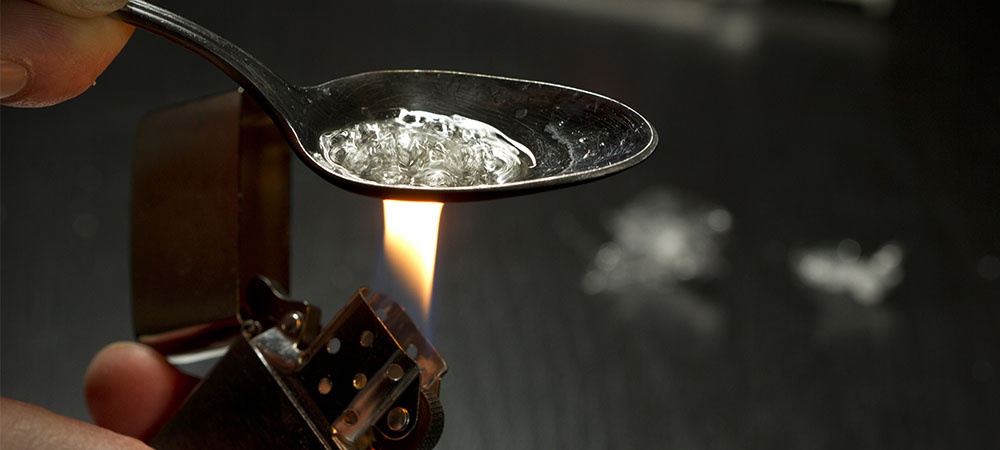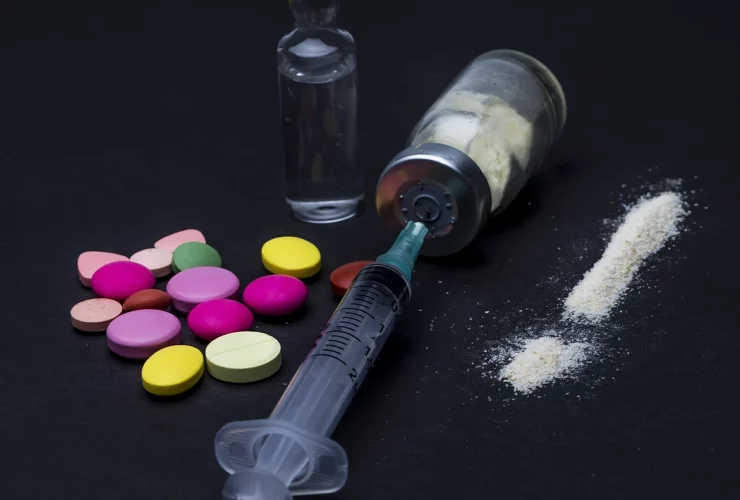Understanding Heroin Addiction: what it is, how it works, and why it’s so hard to quit
Heroin addiction is a growing epidemic with devastating consequences. It’s estimated that over 350,000 Canadians are currently addicted to the drug, and its use is on the rise. This increase has led to surging death rates, including those from fatal overdoses and other opioid-related health complications.
With heroin addiction presenting such a serious public health risk, it’s essential to understand what it is, how it works, and why quitting can be so difficult for individuals who develop an addiction.
Here, we present the answers to those crucial questions, helping you chart a path to freedom from heroin addiction.
What is Heroin Addiction and How Does It Affect the Body?
Heroin addiction is a severe chronic disorder affecting the brain’s reward, motivation, and memory centers. Heroin is an opioid drug derived from the opium poppy plant. It binds to receptors in the brain, leading to an intense feeling of pleasure and euphoria. The drug then causes a dopamine release, which reinforces the addiction.
Prolonged heroin use can lead to severe physical and mental health problems, including respiratory depression, heart infections, collapsed veins, and liver and kidney damage.
Long-term heroin use can also reduce the white matter in the brain, resulting in cognitive impairment, memory loss, and difficulty regulating emotions. Seek professional heroin addiction help if you or someone you know is struggling with heroin addiction.
How Does Heroin Work in the Brain?
Heroin is a highly addictive drug that acts on the brain in a unique way. When heroin enters the brain, it quickly converts into morphine and binds to specific receptors found in the brain and body.
These receptors help regulate pain and pleasure, giving users an intense rush of euphoria followed by feelings of relaxation and sedation. Over time, regular use of heroin can change the brain’s chemistry, creating a physical dependence and making it difficult to stop using.
Additionally, heroin can cause harmful effects on the brain, including impaired cognitive function and changes in brain structure. Understanding the mechanisms of heroin addiction and its effects on the brain is crucial in developing effective treatments for those struggling with addiction.
Related Article: What is the Success Rate of Drug Rehab in Canada?
Reasons It’s So Difficult to Quit Using Heroin
Heroin addiction is a complex problem with many causes and factors that make it difficult to overcome.
One reason heroin is so hard to quit is that it creates a powerful physical dependence on the drug. Withdrawal symptoms, including nausea, vomiting, fever, chills, and muscle pains, can be severe. In addition to these physical symptoms, people who are addicted to heroin often struggle with mental health issues like depression, anxiety, and post-traumatic stress disorder.
They may also face significant social and economic challenges, such as homelessness, poverty, and a lack of access to healthcare. These factors can make it incredibly difficult to break free from heroin addiction and rebuild a healthy and fulfilling life.
The Impact of Heroin Addiction on Society
Heroin addiction is a destructive force that wreaks havoc on both individuals and society as a whole. The physical and psychological toll heroin takes on its users is well documented, but the impact reaches far beyond the individuals directly affected.
From increased healthcare costs to lost productivity in the workforce, the negative effects of heroin addiction are significant and far-reaching. Additionally, the rise in heroin use has contributed greatly to the ongoing opioid crisis in Canada.
As a society, we must continue to address this issue and support those struggling with addiction while also addressing the larger systemic issues contributing to its prevalence.
Treatments Available for Overcoming Heroin Addiction
Heroin addiction can be a difficult road to navigate, but fortunately, there are treatments available to help individuals overcome this addiction. The most effective treatment is typically a combination of medication and therapy.
Medications such as buprenorphine and methadone can help reduce cravings and withdrawal symptoms, while therapy can provide the necessary support and tools to help individuals stay sober.
Behavioral therapies such as cognitive-behavioural therapy or contingency management can address underlying psychological issues and help you develop healthy coping mechanisms. It’s important to consult a healthcare professional to determine the best treatment plan for each individual’s unique needs.
With the right combination of support and treatment, recovery from heroin addiction is possible.
Tips on How to Support a Loved One Struggling with Addiction
Watching someone you care about struggle with heroin addiction can be a heart-wrenching experience. It’s important to approach the situation with compassion and sensitivity.
First and foremost, educate yourself on the nature of addiction and the effects of heroin. This knowledge will equip you to empathize with your loved one and offer useful advice. Additionally, it’s important to encourage your loved one to seek professional help and to let them know they’ll be supported throughout their recovery journey.
Remember, addiction is a mental illness requiring a comprehensive and concerted effort to overcome. But with perseverance and unwavering support, your loved one can regain control of their life.
Related Article: What Are Opioids?
Final Thoughts
Heroin addiction is a serious and life-threatening condition that can bring about immense physical, mental, and social consequences. By understanding the biology of heroin and how it works in the brain, we can begin to form an idea of just how powerful this drug is.
Thankfully, multiple treatments are available for people struggling with heroin addiction. At Inspire Change Wellness Centre, we use a combination of medication and therapy sessions to treat heroin addiction.
While these treatments can be a great step in the right direction, loved ones should be aware of the risks and understand that relapse prevention is a long-term process that requires compassion and patience. With education and support from family members and medical professionals, individuals suffering from heroin addiction can begin to take control over their lives once again.





